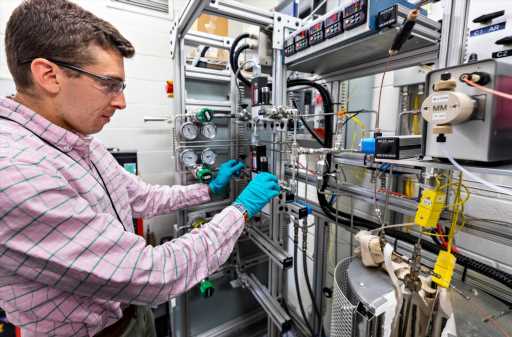The federal government is extending $500 million this year to promote innovation in 20 designated “Tech Hubs” across the country, and although the competition probably won’t match the frenzy around Amazon HQ2, Colorado is pushing hard to make sure its application comes out on top.
“Bringing a hub to Colorado will help us create jobs and facilitate broad-based economic growth, ensure that we do our part addressing key national security challenges, and support innovation-centric growth,” Gov. Jared Polis told a gathering of tech and community leaders at a workshop hosted by the Colorado Office of Economic Development and International Trade on Wednesday.
The CHIPS Act extends $500 million initially, with $10 billion authorized, for 20 Regional Technology and Innovation Hubs, known as Tech Hubs. The program, managed by the U.S. Economic Development Administration, is designed to create and foster innovation centers to benefit communities and geographic regions that might not have the resources to develop them on their own, and to shore up holes in national security which became evident during the pandemic.
Rather than taking a generalized approach, organizers of the state’s application plan to focus on specific areas of strength that other regions of the country aren’t pursuing. The state needs to understand not only its competitive advantage but its “comparative” advantage, said Wendy Lea, co-founder and CEO of Energize Colorado and a panelist speaking Thursday.
“We are looking, no matter what, to unify our ecosystem,” Lea said, explaining the exercise will be helpful whether Colorado lands a hub or not.
Before Colorado competes with other states, advanced industries within the state will be competing to make the strongest pitch — aerospace vs cybersecurity, climate sciences vs. quantum computing, biotech vs. renewable energy. The hope is that industries will team up and propose interesting collaborations that stand out from the other applications the EDA will review.
On paper, Colorado is a strong contender. It has successful research programs at its universities that work closely with nearby federal labs, and a lot of established and emerging companies in advanced industries. The state has the third-highest share of adults with an advanced degree in the U.S., the fourth-highest labor force participation rate, and the fourth-highest share of STEM workers.
But the Tech Hub program is emphasizing the creation of opportunities in areas that have lagged, within communities that have potential but aren’t realizing it, one reason California, home to Silicon Valley, is excluded. Depending on how applications are reviewed, many parts of Colorado could be viewed as too successful. Boulder, for example, is already a strong technology hub — does it really need more federal funding?
The Economic Innovation Group did an analysis in December that estimated the top five candidates in the six regional EDA offices, a cheat sheet designed to help states avoid a wasted effort. Provo, Utah, was the top pick in the Denver region, followed by Springfield, Mo.; Colorado Springs; Wichita; and Lincoln, Neb.
Source: Read Full Article
